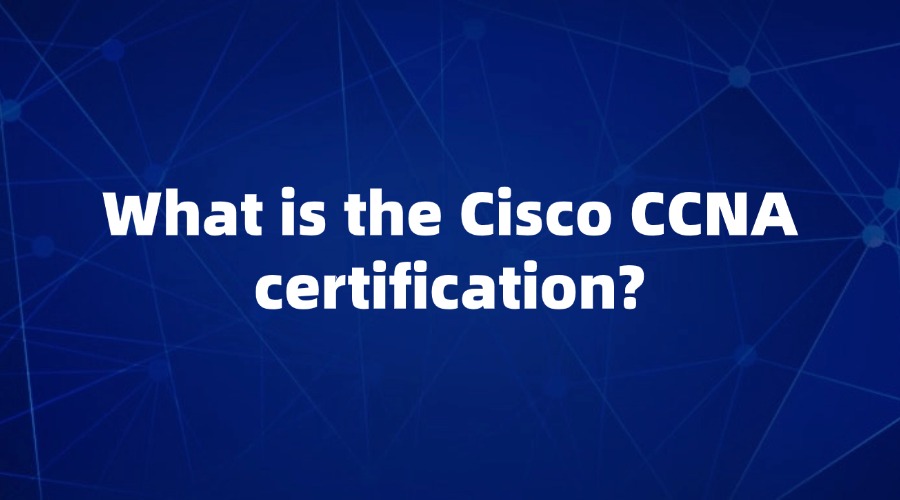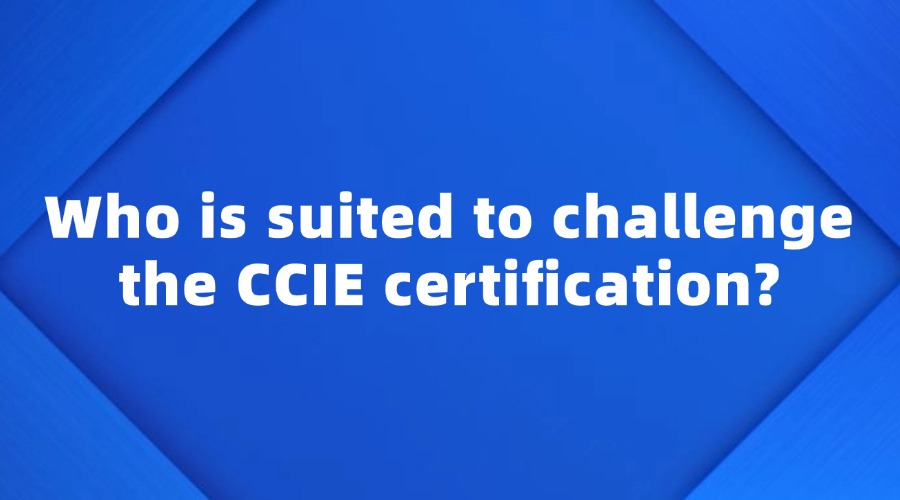What Does the CCNA Certification Cover?
Update time:2024-08-08
The Cisco Certified Network Associate (CCNA) certification is an entry-level network technology certification offered by Cisco, designed to help beginners grasp basic network knowledge and skills. Whether you're new to the IT field or looking to enhance your networking knowledge, the CCNA certification provides a solid technical foundation. Here’s a breakdown of the main topics covered by the CCNA certification:

1. Network Fundamentals
What is a Network?
A network is a system where various devices (such as computers, servers, routers, switches, etc.) are connected either via wired or wireless means to enable data transmission and resource sharing. The CCNA certification covers basic network concepts, types, and how networks operate.
IP Addresses and Subnet Masks
An IP address uniquely identifies each device on a network and comes in two types: IPv4 and IPv6. The CCNA certification explains the format, classification, and subnetting of IP addresses. Subnet masks determine the network and host portions of an IP address, and learning these concepts will enable you to configure and manage IP addresses within a network.
2. Routing and Switching
Basic Functions of Routers and Switches
Routers and switches are key network devices. Routers connect different networks and determine the best path for data transmission based on the destination address. Switches connect multiple devices within the same network and ensure efficient data transfer between them.
VLANs (Virtual Local Area Networks)
VLANs divide devices on the same network into multiple logical subnets to improve network security and management. The CCNA certification teaches you how to configure VLANs, including creating, modifying, and deleting VLANs, as well as routing between VLANs on switches.
Routing Protocols
Routing protocols are rules and standards for exchanging routing information between routers. The CCNA certification introduces common routing protocols like RIP (Routing Information Protocol), EIGRP (Enhanced Interior Gateway Routing Protocol), and OSPF (Open Shortest Path First). You will learn how to configure and optimize these protocols for efficient network operation.
Contact me immediately to get the golden key helping you fast express your certificate.
3. Network Security
Basic Network Security Concepts
Network security involves protecting network devices and data from unauthorized access and attacks. The CCNA certification covers basic network security concepts and technologies, including firewalls, Access Control Lists (ACLs), and Virtual Private Networks (VPNs).
Firewalls and ACLs
Firewalls monitor and control network traffic to block unauthorized access and potential threats. ACLs define rules for allowing or denying network traffic. Learning how to configure firewalls and ACLs will help you enhance network security.
VPNs (Virtual Private Networks)
VPNs create secure, encrypted connections over public networks (like the Internet) to allow remote users to access internal network resources safely. The CCNA certification explains VPN fundamentals and configuration methods to support secure remote access and branch office connectivity.
4. Wireless Networking
Wireless Network Fundamentals
Wireless networks transmit data using radio waves and are commonly found in homes, offices, and public spaces. The CCNA certification covers basic concepts, architecture, and operations of wireless networks.
Wireless Access Points and Controllers
Wireless Access Points (APs) bridge wireless devices with wired networks, and wireless controllers manage multiple APs centrally. You will learn how to configure and manage APs and controllers to ensure efficient and secure wireless network operation.
5. Network Automation and Programming
Network Automation Concepts
Network automation involves using programming and tools to automate network configuration, management, and operation, reducing human error and increasing efficiency. The CCNA certification introduces basic network automation concepts and tools, such as Python and Ansible.
Basics of Python Programming
Python is a popular programming language widely used for network automation. You will learn Python syntax and programming skills to write simple scripts for network device configuration and management.
Ansible Automation Tool
Ansible is an open-source automation tool used for configuration management and application deployment. The CCNA certification covers Ansible’s basic principles and usage to help you achieve network automation.
Summary
The CCNA certification covers various aspects of network fundamentals, routing and switching, network security, wireless networking, and network automation and programming. By studying and mastering these topics, you will be able to configure and manage small to medium-sized networks, troubleshoot network issues, enhance network security, and implement network automation. Whether you’re a beginner or a professional looking to advance in the field of network technology, the CCNA certification provides a solid technical foundation and career development opportunities.
I'm your man who have the 100% valid dumps , buy it now for 50% off to clear your exam!
Click it ↓↓
I'm your man who have the 100% valid dumps , buy it now for 50% off to clear your exam!
Click it ↓↓
Hot article














